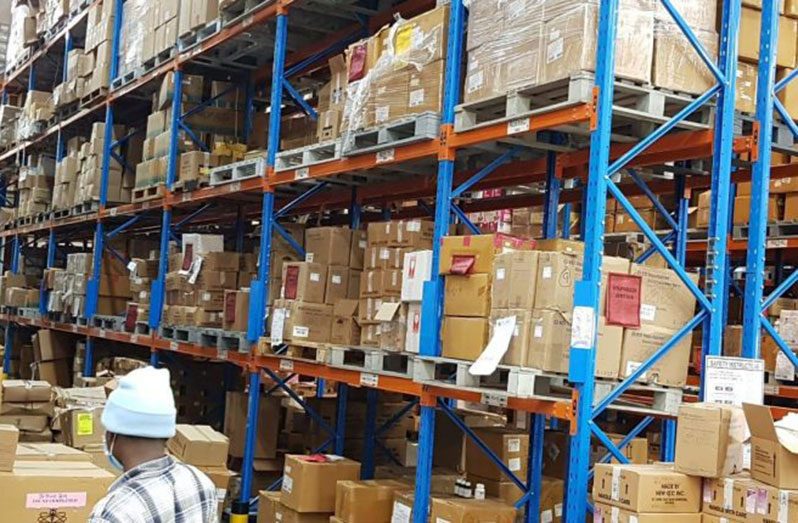…defunct monitoring systems fixed, upgraded to reduce drug shortages – Health Ministry
AFTER recently dumping about $3 billion in expired drugs and medical supplies from its Materials Management Unit (MMU) and other health facilities, efforts have been made to fix the previously defunct modern warehouse Management Information System (MIS) and install pharmaceutical monitors in each administrative region to reduce future shortages.
During a press conference on Monday, Health Minister Dr. Frank Anthony highlighted that the incumbent administration was forced to dump about $3 billion worth of expired medicines and medical supplies since taking office. This accounted for about 300 truckloads of these medical supplies. These supplies were stored at the Health Ministry’s MMU, located at Diamond on the East Bank of Demerara (EBD), while some supplies were stored by the Georgetown Public Hospital Corporation (GPHC).

About 70 percent of the MMU’s supplies had expired, according to the minister, and he noted that the ministry’s records show that about $10 billion in drugs and supplies were dumped over the past five years under the previous administration. This had led to shortages in drugs and supplies.
The Health Minister noted that a comprehensive audit was ordered to help inform a gap analysis of the drug-shortage situation. This audit has since been completed and the minister underscored, “We are now getting a sense of the types of medication that are short and we are able to quantify that and ensure in the next round that we can fill that gap.”
It was noted that many of the drugs purchased were stockpiled in the MMU (the central drugs bond), since these were not the drugs in high demand within the regions. At the press conference, Adviser to the Health Ministry, Dr. Leslie Ramsammy, said that it seemed as though consumption reports — which provide insight into what drugs specific regions used — were not being utilised.
Additionally, Dr. Anthony said that it was found that many of the drugs bought were close to their expiration dates. Finally, the defunct MIS contributed to an extended lull in the distribution process.
“Having done this audit at the MMU and having identified this problem that we have and the magnitude of the problem, we have now been able to restore back the electronic medical system [the MACS] that we have at the MMU and we have updated that, so all the records now going forward, we’re able to use that now to make timely decisions,” Dr. Anthony highlighted.
Additionally, the minister noted that in every region, someone responsible for pharmaceutical supplies has been appointed to check the level of their region’s stock and constantly report that to the MMU.
“We are trying to be more proactive with this and get things out to the regional bond and for them to get it to be able to send it out to the various health facilities,” the Health Minister affirmed.
Moving forward, Dr. Anthony said that focus will be placed on computerising the entire distribution system, so that the distribution, monitoring and management can be done in real time. Recently, Dr. Ramsammy in a statement to the media had highlighted that Guyana’s medicinal needs are expected to be remedied by June, as intensive procurement efforts are being made to supply the local health sector with medicines and medical supplies.
At Monday’s press conference, Dr. Anthony related that $12 billion was already spent in 2020 to procure essential medicines, personal and protective equipment (PPE) and laboratory reagents. To bolster current supplies and meet future needs, additional tenders have been published. These tenders are expected to carry larger costs and are geared at stabilising supplies by June/July.
Aside from stabilising supplies and ensuring that the population’s needs are met, the Health Minister said that he expects that recommendations from the audit will inform efforts to hold the persons responsible for mismanagement of the drugs and supplies.




.png)









